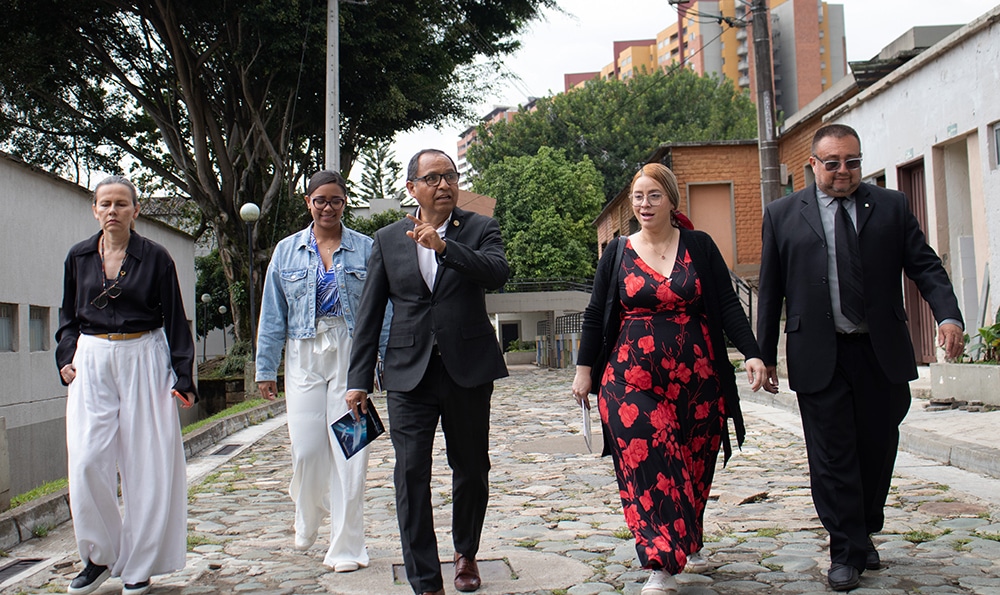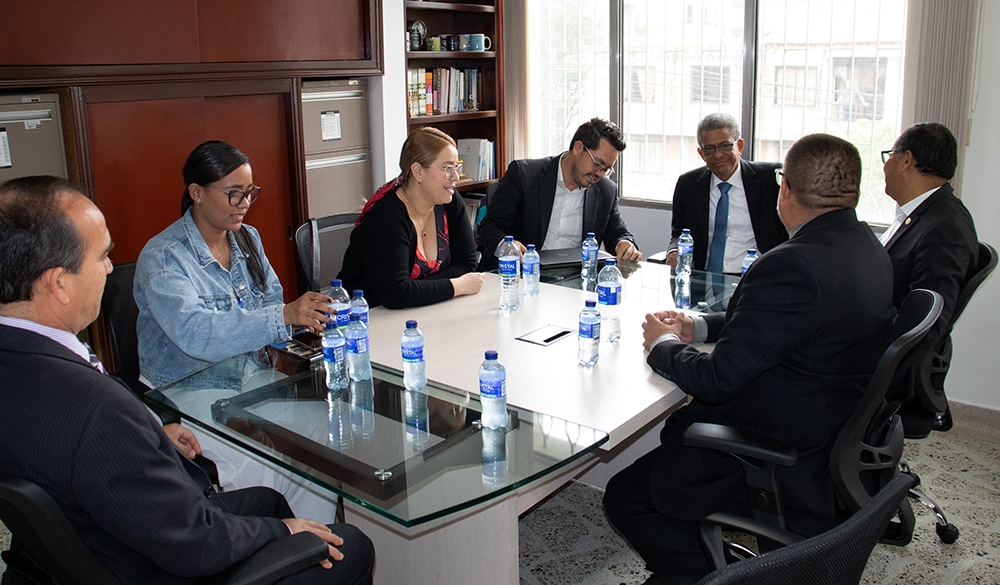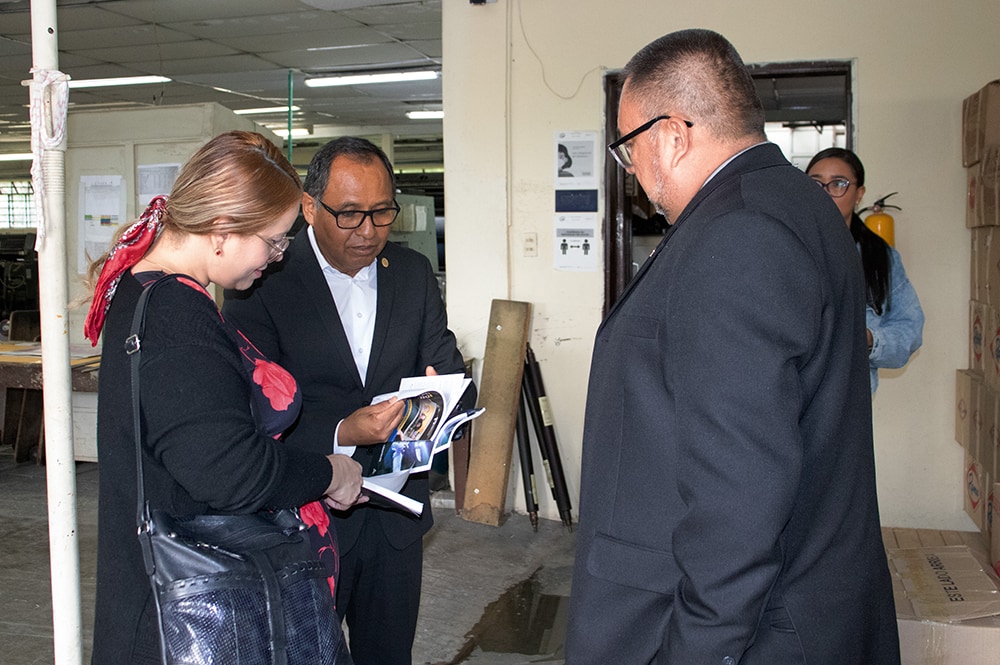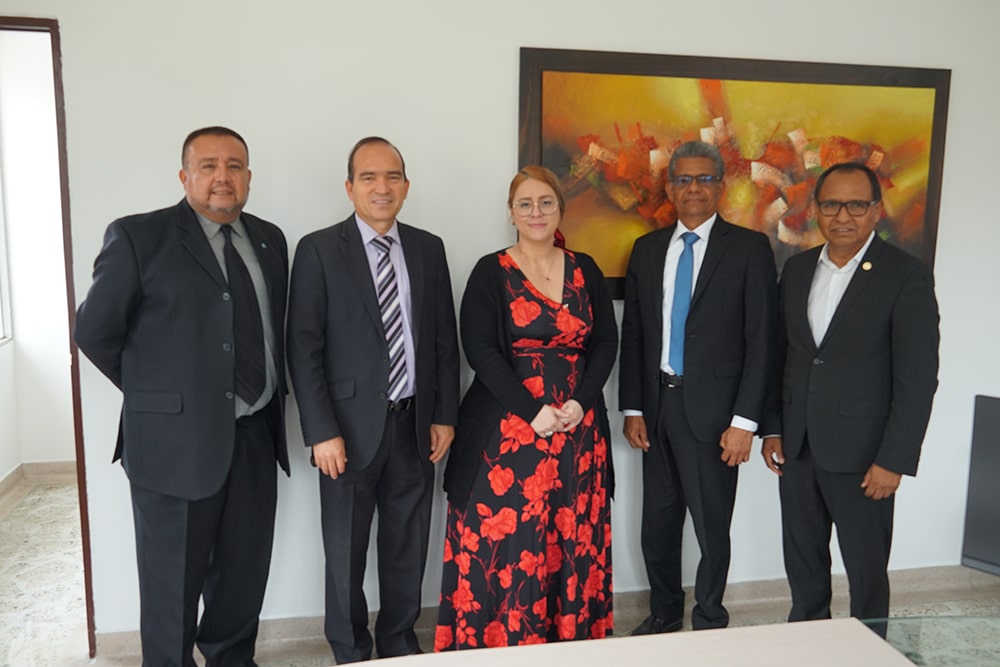
Amelia Rocío Cotes Cortés, director of Religious Affairs in Colombia, recently visited leaders of the Seventh-day Adventist Church in northern Colombia. During the April 12 visit, she highlighted the fundamental role of churches in the construction of the cultural and social fabric in Colombia.
Cotes Cortés discussed the desire of her office to work on research together with the church’s Colombia Adventist University (UNAC), and the interest of the government to know the church’s national and international organization.
“We were prompted by the Office of Religious Affairs and spoke on certain research topics, the possibility of holding colloquiums or symposiums, and working together as a university and church on social projects to benefit vulnerable families in Colombia,” said Jair Florez, public affairs and religious liberty director of the North Colombian Union Conference of the Adventist Church.
During the visit, Cotes Cortés highlighted that faith organizations can help better people’s lives. “Churches transform the individual, transform each being together as a community, transform their entire environment and transform their context,” she said.
In addition, Cotes Cortés highlighted the importance of the role of churches in sustainable development and comprehensive education. She mentioned the Adventist Church as an example of a “moral reserve of the country,” with dedicated work and an exemplary organizational structure.
“The Adventist Church is a renowned church, with a name earned through responsibility, hard work, and through the way of organizing themselves, with order in each of their structures,” Cotes Cortés added. “I have had the best of experiences with the Adventist Church without being part of it, and due to this, I imagine that members are very happy to be part of this church, because it is definitely an example for many others.”
According to Cotes Cortés, it is important for the government of president Gustavo Petro to work hand in hand with the churches at a crucial moment, when his administration seeks to put an end to more than 50 years of conflict.



“It is important to understand that churches, which constitute around 200,000 places of worship and temples in the country, have to be governance spaces in terms of power, authority, and communication, since the moral authorities that the churches have are extremely important, especially for an administration that wants to work toward peace,” Cotes Cortés emphasized.
Union and university leaders were part of the meeting with Cotes Cortés.
Edgar Redondo, president of the North Colombian Union, said the relationship with government authorities of any order will always be valuable. “The Word of God tells us in Romans 12:18: ‘If it is possible, as far as it depends on you, live at peace with everyone,’” Redondo said. “Opening the doors to government figures is valuable, as it allows the authorities to know the potential that the church has to produce changes in society.”
There are nearly 150,000 Seventh-day Adventists worshipping in 1,664 churches and congregations throughout the North Colombian Union. The North Colombian Union is one of two unions operating in Colombia. The South Colombian Union Conference oversees the capital city and southern region of the nation.
The original version of this story was posted on the Inter-American Division news site.